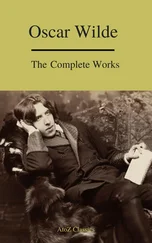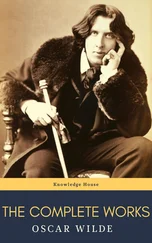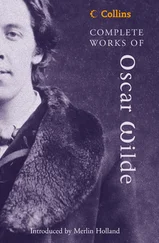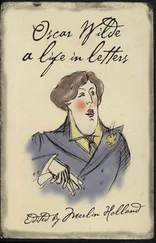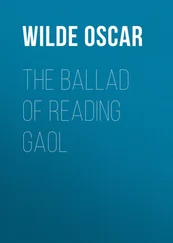A final word needs to be said about the introduction which my father wrote in 1966. At the time it struck exactly the right note. It was a good balance between broad literary assessment and biography and if it skimmed over the reasons for Wilde’s disgrace and imprisonment, it is understandable. Homosexuality in the United Kingdom was still a criminal offence (though legalised the following year) and, odd though it must sound today, it was an aspect of Oscar Wilde’s private life which still made some of his readers distinctly uneasy. It is a sobering thought that the same prosecution could have been brought at the time my father was writing.
It appears, too, that my father made one or two slips of a historical nature in the family history and it would seem appropriate, in the light of later research, to correct them.
The idea that Wilde’s family is descended from Colonel de Wilde is a pleasingly romantic one for which there is sadly no evidence. The furthest back that his paternal lineage can be traced is to a Dublin merchant, John Wilde, in the first half of the 18th century. The statement about King Oscar of Sweden is also incorrect. There is no record of Sir William operating on the King’s cataract, nor was he the inventor of that operation. He was, however, decorated by the Swedish government in 1862 with the order of the Northern Star.
I hope that I show him no disrespect in pointing this out. If I do, let me offer him a suitable misquotation from our common ancestor: ‘Parents begin by loving their children. After a time they are exasperated by them. It is rarely impossible to forgive them.’
INTRODUCTION TO THE 1966 EDITION
by
VYVYAN HOLLAND
Oscar Wilde’s family is Dutch in origin. The first Wilde to settle in Ireland was a certain Colonel de Wilde, the son of an artist, examples of whose work hang in the Art Gallery at The Hague; he was a soldier of fortune who was granted lands in Connaught at the end of the seventeenth century for his services to King William III of England. He is said to have repented his adherence to the English king and to have become ‘more Irish than the Irish’. From that time the family were land agents and doctors.
My father’s parents were both distinguished in their own way. Sir William Wilde was the foremost eye and ear specialist of his time, and a physician of international repute. He invented the operation for cataract and performed it on King Oscar of Sweden, for which he received the Order of the Polar Star. His mother, Lady Wilde, born Jane Francesca Elgee, was a staunch Irish Nationalist, who wrote fierce poems and articles in the Irish Nationalist newspaper The Nation, under the name of ‘Speranza’, a name she had adopted from her motto ‘Fidanza, Constanza, Speranza’ – Faith, Constancy, Hope. Lady Wilde had three children, William, Oscar and Isola, who died when she was ten, to Oscar’s lasting grief. Oscar Wilde was born on 16 October 1854, and was given the names Oscar Fingal O’Flahertie Wills Wilde.
His education began at Portora Royal School in Enniskillen, from which he obtained a scholarship to Trinity College, Dublin, where he won the Berkeley Gold Medal for Greek. From there he received a demyship to Magdalen College, Oxford. While at Oxford he came under the influence of John Ruskin and Walter Pater. Pater preached the love of Art for Art’s sake, and Oscar Wilde, going one step further, set out to idolise beauty for beauty’s sake and filled his rooms looking over the Cherwell with blue china and reproductions of paintings by Rossetti and Burne-Jones. Aestheticism was the key-note of his creed and he declared that beauty was the ideal after which everyone should strive.
My father’s life at Oxford, one gathers from his letters, was a joyous one. He entered whole-heartedly into the undergraduate life of the University and distinguished himself by winning the Newdigate Prize for English verse and getting a double first in Classics. Upon this note he came to London in 1879 with the remains of a small patrimony and started to make his living by his pen. True to his doctrine of beauty he established himself as the ‘Apostle of Aestheticism’ and drew attention to himself by the eccentricity of his dress. It must be remembered that at this period the clothing of the British upper middle classes was rigidly conventional, and the sight of him in the evening in a velvet coat edged with braid, knee-breeches, black silk stockings, a soft loose shirt with a wide turn-down collar and a large flowing tie, was bound to arouse indignant curiosity.
At the same time he was writing poems, and in 1880 he also wrote Vera, a rather immature play, which ran for one week in New York in 1883 and never reached the boards in London. In 1881 his collected poems were published, and in 1882, being short of money, he was persuaded to go on a lecture tour to America. This proved to be a brilliant success and he returned to England in 1883, covered, if not with glory, at least with considerable notoriety.
On his return to Europe, he retired to Paris to finish another play, The Duchess of Padua, for the American actress Mary Anderson; but when she received the play, she turned it down flatly. This was really a disaster for Oscar Wilde, and he returned to England and went on a series of lecture tours in the provinces. However, this nomadic life soon palled and he returned to London where, in 1884, he married Constance Mary, daughter of a distinguished Irish barrister, Horace Lloyd, Q.C. Oscar was romantically in love with his beautiful young wife and for some years he was ideally happy. He had two sons by his wife – Cyril, born in 1885, and myself in 1886.
Oddly enough, although his literary activities had been almost entirely confined to writing poetry until his marriage, he now turned largely to prose and, with the exception of The Sphinx, the idea of which had occurred to him much earlier, he wrote few poems until after his imprisonment, when he wrote The Ballad of Reading Gaol. Boris Brasol, who wrote one of the only two carefully considered lives of my father, sums up his poetic period as follows:
‘He began his literary career as a composer of sonorous and pleasing verses in which, however, as he himself admitted, ‘there was more rhyme than reason’; yet as he grew older, he seemed to have lost all taste for poetry, and though there is nothing that would justify the contention that he ever regarded his early poems as callow productions, the fact remains that upon reaching maturity he took no further interest in that delightful occupation which Browning aptly called “the unlocking of hearts with sonnet keys”.’
Upon what, then, does his reputation as an author rest? His early poems were mostly lyrical, and certain of them will undoubtedly pass the test of time. His true literary life was spread over seven years only, from 1888 until 1894. In 1887 he had become editor of Woman’s World in which capacity he continued until 1889 when he resigned. He had gathered a reputation for eccentricity and, still more, as a conversationalist. There are few people alive now who remember his conversation, but when in 1954 a plaque was unveiled by Sir Compton Mackenzie on the house in Tite Street where my family lived for eleven years, he read the following message from Sir Max Beerbohm (the Incomparable Max!), who felt too frail to undertake the journey to London to be present:
‘I have had the privilege of listening to many masters of table talk – Meredith and Swinburne, Edmund Gosse and Henry James, Augustine Birrell and Arthur Balfour, Gilbert Chesterton and Desmond MacCarthy and Hilaire Belloc – all of them splendid in their own way. But Oscar was the greatest of them all – the most spontaneous and yet the most polished, the most soothing and yet the most surprising…Nobody was willing to interrupt the music of so magnificent a virtuoso. To have heard him consoled me for not having heard Dr Johnson or Edmund Burke, Lord Brougham or Sidney Smith.’
Читать дальше
Конец ознакомительного отрывка
Купить книгу


